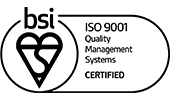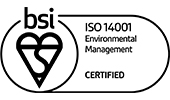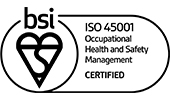The last twelve months have proven just how much can be achieved at distance. There is no doubt much to be gained from a more flexible way of working, but in determining this approach to the workplace, we must also consider what we stand to lose.
We’ve always believed the workplace should be a continually evolving platform, a space that can adapt in-line with the needs of the business and its people.
But what do we all stand to lose if our daily commute becomes a thing of the past and teams become largely virtual? And how will this in turn impact on productivity, efficiency and creativity within business?
Alongside the commercial savings and the opportunity to remove some of the unreasonable or unnecessary pressures of office life, we need to consider the human cost.
A year of working at home for many people during the Covid-19 pandemic has led to video calls replacing meetings and conferences in person. Many people have also opted for video calls instead of phone calls, vastly increasingly the amount of time spent staring into webcams.
The concept of “Zoom fatigue” is real according to researchers who found that meetings conducted via video calls leave participants feeling more exhausted and emotionally drained than those held face to face. Sound familiar?
Human interaction builds trust, and trust is essential in building mutually beneficial relationships that last. Removing or restricting people’s ability to interact is likely to have a negative long-term impact on any business.
Culture is also something that’s challenging to maintain at a distance. It’s often hard to articulate and even harder to replicate, but it’s what attracts people – clients and colleagues – and it’s what makes them stay. Establishing, maintaining and demonstrating that culture is almost impossible without physical interaction. It’s often achieved through ritual and experience, and whilst technology can play its part, it can only go so far. Read more here on company culture and how it could change after the pandemic.
Howard Dawber, head of strategy at Canary Wharf Group, told the BBC that people will still want to divide time between the workplace and home, but they are missing the office and city-centre life.
For many of us, the office brings with it friendship, camaraderie and understanding. Without regular contact, businesses run the risk of losing out on the creative potential of a team in sync. Whilst most businesses we’ve spoken to, including our own, have put regular team meetings and even socials in place to keep people connected, they are no substitute for physical interaction.
Are you feeling Zoom fatigue? Let us know your comments via our LinkedIn page.








